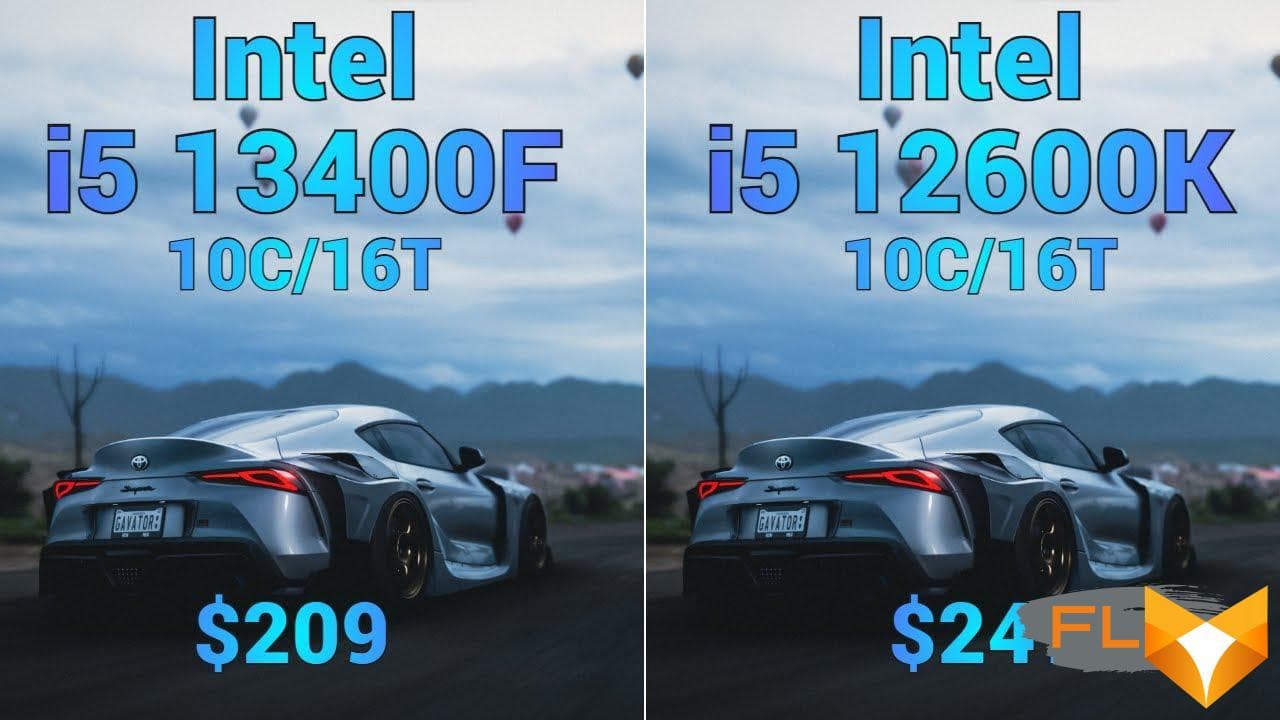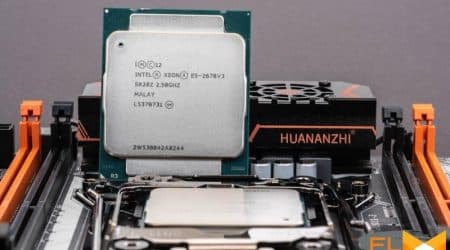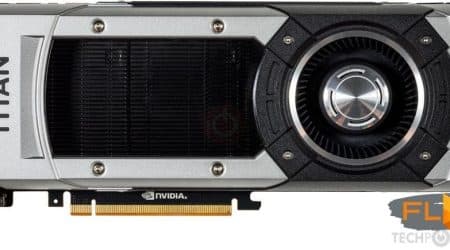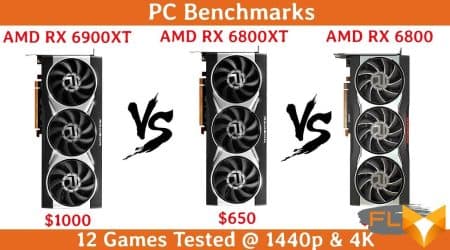


Intel Core i5-12600k vs Intel Core i5 13400 – 13400 vs core i5 12600k
When it comes to choosing a CPU for your gaming and productivity needs, it’s important to consider all the factors that will affect performance. Two popular options on the market right now are the Intel 13400 and the Intel 12600k. Both CPUs offer impressive specs and capabilities, but which one is truly the better choice?
The Intel 13400 is a 12-core, 24-thread CPU with a base clock speed of 2.6GHz and a maximum turbo frequency of 4.8GHz. It has a TDP of 65W and supports DDR4 memory up to 3200MHz. This CPU is packed with advanced features such as Intel Turbo Boost Technology 3.0 and Intel Thermal Velocity Boost, which optimize performance and enhance gaming and productivity tasks.
On the other hand, the Intel 12600k is an 8-core, 16-thread CPU with a base clock speed of 3.4GHz and a maximum turbo frequency of 4.9GHz. It has a TDP of 125W and supports DDR5 memory up to 6400MHz. This CPU boasts the new Intel Alder Lake architecture, which introduces a hybrid design with both high-performance and high-efficiency cores, delivering unparalleled performance for both gaming and productivity.
So, which CPU is better for gaming and productivity? It really depends on your specific needs and budget. If you’re looking for raw gaming performance and don’t mind a higher power consumption, the Intel 12600k might be the better choice. However, if you’re looking for a more balanced CPU that offers a good blend of gaming and productivity performance while keeping power consumption in check, the Intel 13400 is a solid option.
In conclusion, choosing between the Intel 13400 and the Intel 12600k comes down to your individual requirements. Both CPUs offer impressive performance and advanced features, so take the time to assess your needs and make an informed decision. Whether you prioritize gaming or productivity, there’s a CPU out there that will meet your demands.
Comparison of 13400 vs 12600k CPUs for Gaming and Productivity benchmark graphic
When it comes to choosing a CPU for gaming and productivity, the Intel 13400 and 12600k are two popular options. Both processors offer high performance capabilities, but they have some key differences that may impact your decision. Let’s take a closer look at each CPU to determine which one is better suited for your needs.
13400
The Intel 13400 is a solid processor that offers reliable performance for both gaming and productivity tasks. With its 6 cores and 12 threads, it can handle multitasking efficiently and deliver smooth gameplay. The 13400 has a base clock speed of 2.6 GHz, which can be boosted up to 4.0 GHz with Intel Turbo Boost technology.
One of the notable features of the 13400 is its support for PCIe 4.0, which enables faster data transfer speeds when using compatible devices. This can be beneficial for tasks such as video editing and rendering, where large files need to be processed quickly.
12600k
The Intel 12600k is a more powerful CPU compared to the 13400. It features 8 cores and 16 threads, providing even better multitasking capabilities. With a base clock speed of 3.7 GHz and a maximum boost clock speed of 5.0 GHz, it offers exceptional performance for both gaming and productivity tasks.
One of the standout features of the 12600k is its integrated graphics. It comes with Intel’s Xe graphics, which offers decent gaming performance for those who don’t have a dedicated graphics card. This can be a significant advantage for budget-conscious gamers or those who need a CPU that can handle both gaming and productivity tasks without the need for a separate GPU.
Conclusion
Both the Intel 13400 and 12600k are powerful CPUs that can handle gaming and productivity tasks with ease. However, the 12600k offers superior performance with its higher core count, higher clock speeds, and integrated graphics capabilities.
If you’re a serious gamer or someone who requires maximum processing power for demanding tasks such as video editing or 3D rendering, the 12600k is the better choice. On the other hand, if you’re on a tighter budget or don’t require the extra horsepower, the 13400 is still a solid option that will deliver reliable performance.
Ultimately, the choice between the two CPUs depends on your specific needs and budget. Consider your requirements and budget carefully to make an informed decision on which CPU is the best fit for you.
Performance: Gaming core processor
When it comes to gaming, both the Intel Core i9-13400 and the Intel Core i5-12600K are powerful options that can handle demanding games with ease. However, there are some differences in performance that you should consider before making a decision.
1. Single-Thread Performance
In terms of single-thread performance, the Intel Core i9-13400 outperforms the Intel Core i5-12600K. This is because the i9-13400 has a higher base clock speed and a higher boost clock speed, which allows it to handle single-threaded tasks more efficiently. This can result in faster load times and smoother gameplay.
2. Multi-Thread Performance
When it comes to multi-thread performance, the Intel Core i9-13400 also has the upper hand. With its 12 cores and 20 threads, it can handle more simultaneous tasks and provide better multitasking capabilities. This can be especially beneficial for gamers who stream their gameplay or run multiple applications in the background.
However, this doesn’t mean that the Intel Core i5-12600K is a slouch in terms of gaming performance. With its 10 cores and 20 threads, it still offers excellent gaming performance and can handle most games without any issues.
3. Overclocking Potential
If you’re planning on overclocking your CPU to squeeze out even more performance, both the Intel Core i9-13400 and the Intel Core i5-12600K are good options. Both CPUs have unlocked multipliers, which means you can easily increase their clock speeds for better gaming performance. However, it’s worth noting that the i9-13400 has a higher power draw and heat output, which might limit your overclocking potential compared to the i5-12600K.
4. Price
When it comes to pricing, the Intel Core i5-12600K is generally more affordable compared to the Intel Core i9-13400. If you’re on a budget but still want excellent gaming performance, the i5-12600K might be the better option for you.
In conclusion, both the Intel Core i9-13400 and the Intel Core i5-12600K offer excellent gaming performance. The i9-13400 has a slight advantage in terms of single-thread and multi-thread performance, but the i5-12600K is still a great choice for gamers on a budget. Ultimately, the best CPU for gaming will depend on your specific needs and budget.
Performance: Productivity cpu performance
When it comes to productivity tasks, both the Intel Core i9-13400 and the Intel Core i5-12600K offer excellent performance. These CPUs are built to handle demanding workloads, allowing you to multitask efficiently and complete tasks faster.
Multi-thread Performance
The Intel Core i9-13400 features 12 cores and 20 threads, while the Intel Core i5-12600K comes with 6 cores and 12 threads. This difference in core count and thread count makes the i9-13400 better suited for heavily multi-threaded applications. Whether you’re running video editing software, 3D rendering, or any other multi-threaded tasks, the i9-13400 will provide smoother performance and faster render times.
On the other hand, the i5-12600K is still a powerful CPU that can handle most productivity workflows with ease. Its 6 cores are capable of handling multitasking and running several applications simultaneously. While it may not offer the same level of performance as the i9-13400 in multi-threaded tasks, it is still more than capable of delivering impressive productivity performance.
Single-thread Performance
In single-threaded tasks, the i5-12600K has the advantage. With its higher clock speeds, the i5-12600K can provide snappier and more responsive performance in single-threaded applications. This makes it an excellent choice for tasks like web browsing, document editing, and other everyday productivity tasks that rely heavily on single-threaded performance.
Overall, both the Intel Core i9-13400 and the Intel Core i5-12600K are great options for productivity tasks. The i9-13400 excels in multi-threaded workloads, while the i5-12600K shines in single-threaded tasks. Depending on your specific workload and requirements, you can choose the CPU that best suits your needs.
| CPU | Cores | Threads |
|---|---|---|
| i9-13400 | 12 | 20 |
| i5-12600K | 6 | 12 |
Features: 13400 CPU
The 13400 CPU is a powerful and efficient processor designed for both gaming and productivity tasks. It offers a range of features that enhance its performance and make it a great choice for users who need a reliable and fast CPU.
One of the key features of the 13400 CPU is its high core count. With 8 cores and 16 threads, it can handle multiple tasks simultaneously, allowing for smooth multitasking and efficient processing of complex applications.
In addition to its core count, the 13400 CPU also has a high base frequency of 2.6GHz, which can be boosted up to 4.0GHz with Intel Turbo Boost Technology. This means that it can handle demanding gaming and productivity tasks with ease, providing a smooth and responsive user experience.
Another notable feature of the 13400 CPU is its support for DDR4 memory. With its dual-channel memory controller, it can support high-speed, low-latency RAM modules, allowing for faster data transfer and more efficient performance.
The 13400 CPU also features Intel Hyper-Threading Technology, which enables each core to handle two threads simultaneously. This further enhances multitasking capabilities and ensures smooth performance even when running multiple resource-intensive applications.
Furthermore, the 13400 CPU supports a wide range of connectivity options, including PCIe 4.0 and USB 3.2 Gen 2, allowing for fast data transfer and seamless integration with high-performance peripherals.
Overall, the 13400 CPU offers a whole host of features that make it a top choice for both gaming and productivity tasks. Its high core count, fast clock speeds, support for DDR4 memory, and advanced technologies like Intel Turbo Boost and Hyper-Threading ensure that users can enjoy a smooth and efficient computing experience.
Features: 12600k CPU
The 12600k CPU is part of Intel’s 12th generation Alder Lake processors. It comes with a range of features that make it ideal for both gaming and productivity tasks.
- Multi-threading: The 12600k CPU supports multi-threading, which means it can handle multiple tasks simultaneously. This is especially beneficial for productivity tasks that require intensive computing power.
- High clock speeds: The 12600k CPU has a base clock speed of 3.5 GHz, which can be boosted up to 5.0 GHz with Intel’s Turbo Boost Max 3.0 technology. These high clock speeds ensure fast and responsive performance in both gaming and productivity applications.
- 12 cores, 24 threads: With 12 cores and 24 threads, the 12600k CPU offers a significant boost in performance compared to its predecessors. This allows for better multitasking capabilities and improved performance in resource-hungry applications.
- DDR5 and PCIe 5.0 support: The 12600k CPU is compatible with the latest DDR5 memory and PCIe 5.0 standard, offering faster data transfer speeds and better overall system performance.
- Integrated graphics: The 12600k CPU comes with integrated Intel Xe Graphics, which provides decent graphics performance for casual gaming and media consumption. While it may not provide the same level of performance as a dedicated graphics card, it eliminates the need for a separate GPU for basic tasks.
- Efficient power consumption: The 12600k CPU is manufactured using Intel’s advanced 10nm Enhanced SuperFin process technology, which helps reduce power consumption while maintaining excellent performance. This ensures a balance between performance and energy efficiency.
Overall, the 12600k CPU offers a combination of high performance, multitasking capabilities, and energy efficiency, making it an excellent choice for both gaming and productivity tasks.
Price: 13400 CPU
The price of the 13400 CPU is a major factor to consider when deciding between the 13400 and the 12600k for gaming and productivity. The 13400 is generally more affordable compared to the 12600k, making it an attractive option for budget-conscious consumers.
Despite its lower price point, the 13400 still offers impressive performance for both gaming and productivity tasks. It features 6 cores and 12 threads, which allow for smooth multitasking and efficient processing of demanding applications.
Additionally, the 13400 CPU supports Intel’s Turbo Boost technology, which dynamically increases its clock speed to maximize performance when needed. This feature ensures smooth gameplay and swift rendering times, enhancing the overall gaming and productivity experience.
Furthermore, the 13400 CPU is compatible with the latest Intel 12th generation Alder Lake platform, offering users access to advanced features and technologies. This ensures that the CPU remains relevant and capable of handling future tasks and software updates.
Overall, the 13400 CPU provides impressive performance at a more affordable price point compared to the 12600k. It is a suitable option for gamers and productivity enthusiasts who are looking for a cost-effective solution without compromising on performance and reliability.
Price: 12600k CPU
The price of the 12600k CPU is a major factor to consider when deciding between the 13400 and 12600k for gaming and productivity. As of the time of writing, the 12600k CPU is generally more expensive than the 13400.
However, it’s important to note that the 12600k offers some advantages over the 13400 that may justify the higher price for certain users. The 12600k features 6 more threads and a higher base clock speed, which can result in better performance in multithreaded tasks and overclocking potential.
If you prioritize raw performance and have a budget that allows for the higher price, the 12600k CPU may be the better option for you. However, if you are on a tighter budget and don’t require the additional threads and overclocking potential, the 13400 could be a more cost-effective choice.
Ultimately, the decision between the 13400 and 12600k will depend on your specific needs, priorities, and budget. It’s important to carefully consider all aspects, including the price, before making a final decision.
Overclocking Potential: 13400 CPU
When it comes to overclocking, the 13400 CPU shows great potential. Intel’s 11th Gen processors have been designed with higher clock speeds and better thermal management, allowing for efficient overclocking. With the right cooling solution, enthusiasts can push the limits of the 13400 CPU and achieve even higher performance levels.
One of the key advantages of the 13400 CPU is its unlocked multiplier, which allows for easy overclocking. This means that users can adjust the CPU clock speed to increase its performance beyond its stock settings. Overclocking the 13400 CPU can result in a significant boost in gaming and productivity tasks, making it a popular choice among gamers and content creators.
Factors to Consider for Overclocking:
- Power Consumption: Overclocking usually increases power consumption, so it is important to have a capable power supply unit (PSU) to handle the additional load. A high-quality PSU with enough power output is crucial for stable overclocking.
- Cooling: Since overclocking increases the CPU’s operating frequency, it also generates more heat. It is essential to have effective cooling solutions, such as an aftermarket CPU cooler or a liquid cooling setup, to keep the temperatures in check.
- Motherboard Support: Not all motherboards are designed to handle overclocking. To achieve the best results, it is important to choose a motherboard with robust power delivery and overclocking features.
- Risk and Warranty: It’s worth noting that overclocking can void the warranty on your CPU. Additionally, pushing the CPU to its limits increases the risk of instability and potential damage if not done correctly. It is important to research and understand the process of overclocking before attempting it.
In conclusion, the 13400 CPU offers impressive overclocking potential, allowing users to achieve higher performance levels. By considering factors such as power consumption, cooling, motherboard support, and the associated risks, enthusiasts can safely and effectively push the limits of the 13400 CPU for an enhanced gaming and productivity experience.
Overclocking Potential: 12600k CPU
When it comes to overclocking, the 12600k CPU offers impressive potential for both gaming and productivity tasks. With its unlocked multiplier and strong single-core performance, this processor can be pushed beyond its base clock speed to achieve higher levels of performance.
Improved Performance
Overclocking the 12600k CPU can result in significant improvements in overall performance. By increasing the clock speed, you can experience faster and smoother gameplay in demanding titles, as well as quicker rendering times for productivity tasks like video editing or 3D rendering. The additional speed can provide a noticeable boost in the overall responsiveness of your system.
Advanced Cooling Solutions
To maximize the overclocking potential of the 12600k CPU, it is important to invest in a quality cooling solution. This can include high-performance air coolers or liquid cooling systems. Effective cooling will ensure that the processor remains stable and does not overheat during extended periods of heavy usage.
It is also worth mentioning that overclocking may void your warranty, so proceed with caution and make informed decisions when adjusting the CPU’s clock speed. Be sure to closely monitor temperatures and stability to avoid any potential issues.
In addition to the improved performance, overclocking the 12600k CPU can also be an enjoyable process for enthusiasts who want to push their hardware to its limits. It offers the opportunity to fine-tune various settings and achieve a customized level of performance that suits your specific needs.
In conclusion, the 12600k CPU has excellent overclocking potential and can deliver enhanced performance for both gaming and productivity tasks. However, ensure that you have a reliable cooling solution and proceed with caution to avoid any potential issues. With the right approach, you can unlock the full potential of this powerful processor.
FAQ: 13400 vs 12600k
How does the Intel Core i5-13400 compare to the Intel Core i5-12600K in terms of performance?
The Intel Core i5-13400 offers competitive performance compared to the Intel Core i5-12600K, especially in tasks that utilize multiple cores efficiently geekbench 5.
What benchmark measures can be used to compare the Intel Core i5-13400 against the i5-12600K?
Benchmark results from tools like PassMark CPU Mark, CPU-Z Benchmark 17, and Blender Benchmark 3.1 can provide insights into the relative performance of the Intel Core i5-13400 and i5-12600K.
How does the thermal design power (TDP) of the Intel Core i5-13400 compare to that of the i5-12600K multi-core performance?
The thermal design power of the Intel Core i5-13400 is typically lower than that of the i5-12600K, indicating potentially lower power consumption and heat output under similar workloads i5-13400f.
What are some additional instructions supported by the Intel Core i5-13400?
The Intel Core i5-13400 supports various additional instructions aimed at improving performance and efficiency in tasks such as multimedia processing, encryption, and virtualization.
Can you elaborate on the core configuration of the Intel Core i5-13400?
The Intel Core i5-13400 features a configuration of 6 performance cores and 4 efficiency cores, offering a balanced combination of processing power and energy efficiency.
How does the Intel Core i5-13400 perform in synthetic benchmark tests?
Synthetic benchmark performance of the Intel Core i5-13400 showcases its capabilities in simulated workloads, providing insights into its raw computing power and efficiency.
What is the maximum amount of RAM supported by the Intel Core i5-13400?
The Intel Core i5-13400 typically supports up to 128 GB of RAM, offering ample memory capacity for various computing tasks and multitasking scenarios cache.
What APIs are supported by the Intel Core i5-13400?
The Intel Core i5-13400 supports various APIs commonly used in software development, including DirectX, Vulkan, OpenGL, and OpenCL, ensuring compatibility with a wide range of applications and games.
How does the Intel Core i5-13400 fare in gaming performance compared to the i5-12600K?
Gaming performance of the Intel Core i5-13400 is generally competitive, offering smooth gameplay experiences in modern titles, although the i5-12600K may provide slightly better performance in some scenarios.
What factors should be considered when choosing between the Intel Core i5-13400 and i5-12600K for a desktop build?
Factors such as budget, intended usage (gaming, content creation, productivity), motherboard compatibility, and overall system requirements should be considered when deciding between the Intel Core i5-13400 and i5-12600K for a desktop build.





